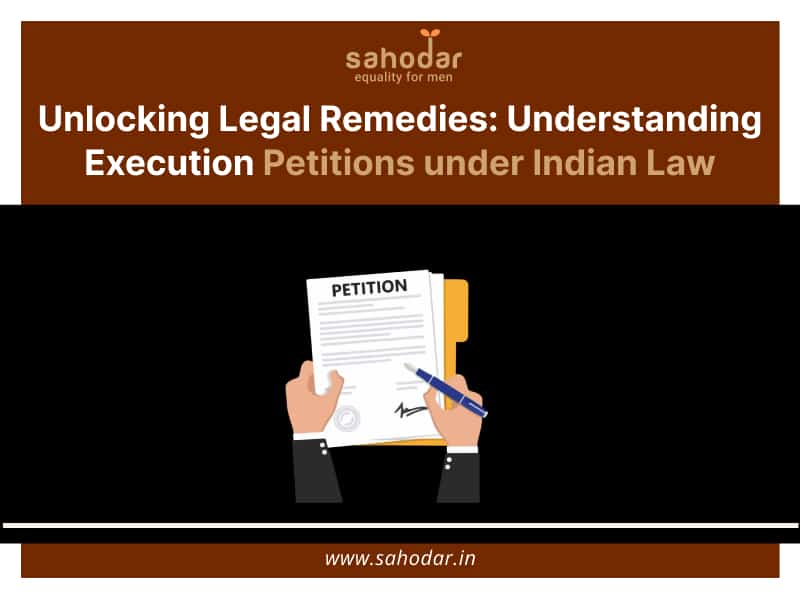Have you ever wondered what happens after a court makes a decision in your favor? Getting a court judgment might seem like the end of a legal battle, but it’s often just the beginning. Many times, the other party doesn’t follow the court’s decision willingly. That’s where something called an execution petition comes into play. In simple terms, it’s like a legal tool that helps you make sure the court’s decision is actually carried out.
What Exactly is an Execution Petition?
Let’s break it down. In India, when you win a case in court and the judge gives a decision in your favor, it’s called a decree or an order. But sometimes, just having that piece of paper saying you won isn’t enough. That’s where an execution petition comes in. It’s like the next step you take to make sure the other party does what the court said they should.
How Do You Start an Execution Petition?
Say you’ve got a court order or decree in your hand, but the other side isn’t doing what they’re supposed to. You can’t just knock on their door and demand compliance. You need to go back to court. That’s when you file an execution petition. It’s a formal way of asking the court to step in and make sure the decision is enforced.
What Goes into an Execution Petition?
When you file an execution petition, you’ve got to give the court all the details they need to understand what’s going on. Here’s what you typically include:
- Decree or Order: You tell the court which judgment you want them to enforce.
- Party Details: You give details about who’s involved – you, the winner (that’s you, the decree-holder), and the loser (that’s the judgment-debtor).
- What You Want: You explain to the court what you’re asking for – maybe it’s money, property, or something else.
- Why You’re Asking: You tell the court why you need them to step in – maybe the other party is ignoring the court’s decision.
- Proof: You give the court any papers that prove your case – like a copy of the court order and any evidence that the other party isn’t doing what they should.
- Your Request: Finally, you ask the court to do something about it – like ordering the other party to pay up or give you what’s rightfully yours.
What Happens Next?
Once you’ve filed your execution petition, the court gets into action. They’ll notify the other party, giving them a chance to explain why they’re not following the court’s decision. Then, the court looks at everything – your petition, the other party’s response, and any evidence – to decide what to do next.
How Does the Court Enforce Its Decision?
If the court agrees with you, they’ll issue what’s called an execution order. This is like the court saying, “Okay, we’ve heard you, and now we’re going to make sure the other party follows our decision.” Depending on what you asked for, the court might use different ways to make sure the other party does what they’re supposed to:
- Property Seizure: The court might order the other party’s property to be taken away and sold to pay you.
- Arrest: In cases where money is owed, the court might order the other party to be arrested until they pay up.
- Freezing Accounts: The court might order banks or others holding money that belongs to the other party to give it to you instead.
- Other Measures: There are other ways too, depending on the situation. The court can get creative to make sure you get what you’re owed.
Challenges and Solutions:
But it’s not always smooth sailing. Sometimes, the other party tries to avoid paying up or following the court’s decision. They might hide their assets or delay things as much as possible. In such cases, you might face some challenges. But there are ways to deal with them:
- Fast-tracking: You can ask the court to speed things up if the other party is dragging their feet.
- Protection Orders: You can ask the court to stop the other party from doing anything that might make it harder for you to get what you’re owed.
- Contempt Charges: If the other party flat-out refuses to follow the court’s decision, they could face contempt charges – which means they could be fined or even jailed.
Conclusion:
In a nutshell, execution petitions are like the legal muscle behind court decisions. They make sure that winning a case isn’t just about having a piece of paper – it’s about actually getting what you’re owed. So, if you ever find yourself in a situation where the other party isn’t playing fair, don’t worry. With an execution petition, you’ve got the law on your side.

